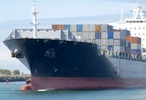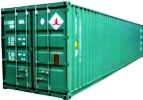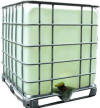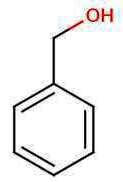| Mubychem Group, established in 1976, is the pioneer manufacturer of Benzyl Alcohol, Pharmaceutical, Fragrance & Flavor chemicals in India. Mubychem Group has several manufacturing facilities spread across Gujarat and Mumbai India and world wide contacts and toll manufacturers. We are exporting globally to countries like USA, Canada, Europe, UAE, South Africa, Tanzania, Kenya, Egypt, Nigeria, Uganda, Turkey, Mexico, Brazil, Chile, Argentina, Dubai etc. |
The participating units have one or more accreditations like FDA - GMP approval; ISO-9001 Certified; "REACH"registered; ISO-22000; Kosher Certified;Halal Certified; HACCP. We offer Pure & IP BP USP FCC Food Grade ACS AR Analytical Reagent Grades of Chemicals | |







Benzyl Alcohol Manufacturers, MSDS Sheet
Benzyl Alcohol
IP BP Ph. Eur. USP-NF ACS AR LR FCC Food Grades

Benzyl Alcohol BP USP NF IP FCC ACS Grade Manufacturers
Benzyl Alcohol MSDS Sheet, Material safety Data Sheet
1. Product Identification
Synonyms: Benzenecarbinol; benzenemethanol; alpha-hydroxytoluene; Phenylmethyl alcohol; Phenyl carbinol
CAS No.: 100-51-6
Molecular Weight: 108.14
Chemical Formula: C6H5CH2OH
2. Composition/Information on Ingredients
Ingredient: Benzyl AlcoholCAS No.: 100-51-6
3. Hazards Identification
Potential Acute Health Effects:
Hazardous in case of skin contact (irritant), of eye contact (irritant), of inhalation. Slightly hazardous in case of skin contact (permeator), of ingestion.
Potential Chronic Health Effects:
Slightly hazardous in case of skin contact (sensitizer).
Carcinogenic Effects: Not available.
Mutagenic Effects: Mutagenic for bacteria and/or yeast.
Teratogenic Effects: Not available.
Developmental Toxicity: Not available.
Repeated or prolonged exposure to the substance can produce target organs damage. The substance may be toxic to liver, central nervous system (CNS).
4. First Aid Measures
Inhalation: If Benzyl Alcohol inhaled, remove to fresh air. If not breathing, give artificial respiration. If breathing is difficult, give oxygen. Get medical attention.
Ingestion: Give large amounts of water to drink. Never give anything by mouth to an unconscious person. Get medical attention.
Skin Contact: Immediately flush skin with plenty of water for at least 15 minutes. Remove contaminated clothing and shoes. Get medical attention. Wash clothing before reuse. Thoroughly clean shoes before reuse.
Eye Contact: Check for and remove any contact lenses. Immediately flush eyes with running water for at least 15 minutes, keeping eyelids open. Cold water may be used. Get medical attention.
5. Fire Fighting Measures
Fire: Flash point: 93C (199F)
Auto ignition temperature: 436C (817F)
Combustible. High heat or direct flame is necessary to cause ignition.
Explosion: Above the flash point, explosive vapor-air mixtures may be formed.
Fire Extinguishing Media: Dry chemical, foam or carbon dioxide. Do not use a solid stream of water, since the stream will scatter and spread the fire. Water spray may be used to keep fire exposed containers cool.
Special Information: In the event of a fire, wear full protective clothing and NIOSH-approved self-contained breathing apparatus with full face piece operated in the pressure demand or other positive pressure mode.
6. Accidental Release Measures
Small Spill: Dilute with water and mop up, or absorb with an inert dry material and place in an appropriate waste disposal container. Finish cleaning by spreading water on the contaminated surface and dispose of according to local and regional authority requirements.
Large Spill: Benzyl Alcohol is Combustible material. Keep away from heat. Keep away from sources of ignition. Stop leak if without risk. Finish cleaning by spreading water on the contaminated surface and allow to evacuate through the sanitary system.
7. Handling and Storage
Protect against physical damage. Outside or detached storage is preferred. Inside storage should be in a standard flammable liquids storage room or cabinet. Separate from oxidizing materials. Storage and use areas should be No Smoking areas. Containers of Benzyl Alcohol may be hazardous when empty since they retain product residues (vapors, liquid); observe all warnings and precautions listed for the product.
8. Exposure Controls/Personal Protection
Airborne Exposure Limits: AIHA Workplace Environmental Exposure Level (WEEL):10 ppm, 8-hour, TWA
Ventilation System: A system of local and/or general exhaust is recommended to keep employee exposures as low as possible. Local exhaust ventilation is generally preferred because it can control the emissions of the contaminant at its source, preventing dispersion of it into the general work area. Please refer to the ACGIH document, Industrial Ventilation, A Manual of Recommended Practices, most recent edition, for details.
Personal Respirators (NIOSH Approved): For conditions of use where exposure to the substance is apparent and engineering controls are not feasible, consult an industrial hygienist. For emergencies, or instances where the exposure levels are not known, use a full-face piece positive-pressure, air-supplied respirator. WARNING: Air purifying respirators do not protect workers in oxygen-deficient atmospheres.
Skin Protection: Wear impervious protective clothing, including boots, gloves, lab coat, apron or coveralls, as appropriate, to prevent skin contact.
Eye Protection: Use chemical safety goggles and/or a full face shield where splashing is possible. Maintain eye wash fountain and quick-drench facilities in work area.
9. Physical and Chemical Properties
Appearance: Benzyl Alcohol is clear, colorless liquid.
Odor: Faint aromatic odor.
Solubility: 1g/25ml water @ 17C
Specific Gravity: 1.05 @ 20C/4C
pH: No information found.
% Volatiles by volume @ 21C (70F): 100
Boiling Point: 205C (401F)
Melting Point: -15C (5F)
Vapor Density (Air=1): 3.72
Vapor Pressure (mm Hg): 0.15 @ 25C (77F)
Evaporation Rate (BuAc=1): 1.8 (Ether = 1)
10. Stability and Reactivity
Stability: Benzyl Alcohol is stable under ordinary conditions of use and storage. Undergoes slow oxidation in the presence of air or oxygen to form benzaldehyde and benzoic acid.
Hazardous Decomposition Products: Carbon dioxide and carbon monoxide may form when heated to decomposition.
Hazardous Polymerization: When heated past 100C, Benzyl Alcohol containing hydrogen bromide and dissolved iron may polymerize with a rapid increase in temperature.
Incompatibilities: Acids, oxidizing agents, and aluminum. Will attack some plastics.
Conditions to Avoid: Heat, flames, ignition sources and incompatibles.
11. Toxicological Information
Oral rat LD50: 1230 mg/kg; skin rabbit LD50: 2000 mg/kg; irritation, skin rabbit, standard Draize, 100 mg/24-hour, open, moderate; investigated as a tumorigen, mutagen, reproductive effector.
--------\Cancer Lists\ -----------------------------------------------------
---------------------------- NTP Carcinogen---
Ingredient ----------------- Known -- Anticipated -- IARC Category
Benzyl Alcohol (100-51-6) --- No ------ No ---------- None
Environmental Fate:
When released into the soil, this material is expected to leach into groundwater. When released into the soil, this material may evaporate to a moderate extent. When released into the soil, this material may biodegrade to a moderate extent. When released into water, this material is not expected to evaporate significantly. When released into water, this material may biodegrade to a moderate extent. This material has an estimated bio concentration factor (BCF) of less than 100. This material is not expected to significantly bio accumulate. When released into the air, this material is expected to be readily degraded by reaction with photo chemically produced hydroxyl radicals. When released into the air, this material is expected to have a half-life between 1 and 10 days. When released into the air, this material may be removed from the atmosphere to a moderate extent by wet deposition.
Environmental Toxicity: The LC50/96-hour values for fish are from 10 to over 100 mg/l. This material may be toxic to aquatic life.
13. Disposal Considerations
Whatever cannot be saved for recovery or recycling should be managed in an appropriate and approved waste disposal facility. Processing, use or contamination of this product may change the waste management options. State and local disposal regulations may differ from federal disposal regulations. Dispose of container and unused contents in accordance with federal, state and local requirements.
14. Transport Information
Not regulated.
15. Regulatory Information
--------\Chemical Inventory Status - Part 1\ --------------------------------- Ingredient ------------------------------------ TSCA EC Japan Australia ----------------------------------------------- ---- --- ----- --------- Benzyl Alcohol (100-51-6) --------------------- Yes - Yes -Yes --- Yes --------\Chemical Inventory Status - Part 2\--------------------------------- --Canada-- Ingredient ------------------------------------ Korea DSL NDSL Phil. ----------------------------------------------- ----- --- ---- ----- Benzyl Alcohol (100-51-6) --------------------- Yes -- Yes - No -- Yes --------\Federal, State & International Regulations - Part 1\---------------- ------------------------------------------ -SARA 302- -- ------SARA 313------ Ingredient RQ TPQ List Chemical Catg. ------------------------------------------ --- ----- ---- -------------- Benzyl Alcohol (100-51-6) ---------------- No -- No ---- No --- No --------\Federal, State & International Regulations - Part 2\---------------- ---------------------------------------------------- -RCRA- -TSCA- Ingredient ------------------------------ CERCLA 261.33 8(d) ----------------------------------------- ------ ------ ------ Benzyl Alcohol (100-51-6) --------------- No ------- No ------ No
Chemical Weapons Convention: No TSCA 12(b): No CDTA: No
SARA 311/312: Acute: Yes; Chronic: Yes; Fire: Yes; Pressure: No
Reactivity: No (Pure / Liquid)
Australian Hazchem Code: None allocated.
Poison Schedule: None allocated. OSHA: Hazardous by definition of Hazard Communication Standard (29 CFR 1910.1200).
EINECS: This product is on the European Inventory of Existing Commercial Chemical Substances.
WHMIS (Canada):
CLASS B-3: Combustible liquid with a flash point between 37.8°C (100°F) and 93.3°C (200°F). CLASS D-2B: Material causing other toxic effects (TOXIC).
DSCL (EEC): R20/22- Harmful by inhalation and if swallowed. S26- In case of contact with eyes, rinse immediately with plenty of water and seek medical advice.
HMIS (U.S.A.):
Health Hazard: 2
Fire Hazard: 2
Reactivity: 0
Personal Protection:
National Fire Protection Association (U.S.A.):
Health: 1
Flammability: 1
Reactivity: 0
Specific hazard:
Protective Equipment:
Gloves. Lab coat. Vapor respirator. Be sure to use an approved/certified respirator or equivalent. Wear appropriate respirator when ventilation is inadequate. Splash goggles.
16. Other Information
Disclaimer:
******************************
Our company provides this Benzyl Alcohol MSDS information sheet contained herein in good faith but makes no representation as to its comprehensiveness or accuracy. This Benzyl Alcohol MSDS sheet is intended only as a guide to the appropriate precautionary handling of the material by a properly trained person using this product. Individuals receiving the information must exercise their independent judgment in determining its appropriateness for a particular purpose.
******************************
Benzyl Alcohol Manufacturers:
MUBYCHEM GROUP
CHINCHBUNDER, MUMBAI 400009, INDIA
TEL: (OFFICE) 91-22-23774610, 91-22- 23723564. 91-22-23728264
e-mail: anmol@pcmenergy.com

Copyright and Usual Disclaimer is Applicable.

Global or International Benzyl Alcohol Suppliers, Exporters, Importers, Manufacturers
If I give you “My Word” Nobody can undo it.
If I sign an “Agreement” my Lawyer will undo it
Perfection is made up of small thing but it is not small.
